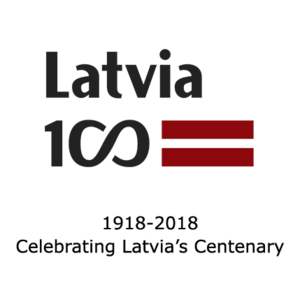September’s foreign trade turnover in Latvia 7.7% higher than a year ago
In September 2020 the foreign trade turnover of Latvia amounted to EUR 2.7 billion, which at current prices was 7.7 % larger than a year ago, of which the exports value of goods was 13 % higher, but imports value of goods – 3.5 % higher.
In September Latvia exported goods in the amount of EUR 1.28 billion, but imported – in the amount of EUR 1.43 billion. Compared to September 2019, foreign trade balance has improved slightly as exports in total foreign trade amount increased from 45 % to 47.2 %.
During the nine months of this year foreign trade turnover of Latvia at current prices reached EUR 20.36 billion – EUR 1.09 billion or 5.1 % less than in the corresponding period of the previous year. The exports value constituted EUR 9.46 billion (a drop of EUR 123.8 million or 1.3 %), whereas the imports value comprised EUR 10.9 billion (a fall of EUR 962.5 million or 8.1 %).
Calendar and seasonally adjusted data show that, compared to September 2019, in September 2020 the exports value at current prices went up by 9.7 % and the imports value – by 1.1 %, whereas, compared to the previous month, the exports value went up by 6.4 % ,but the imports value – by 5.1 %.
Main changes in exports in September 2020, compared to September 2019, included the following: exports of vegetable products up by EUR 87.8 million or 78.8 %; exports of machinery and mechanical appliances; electrical equipment up by EUR 65.8 million or 37 %; exports of plastics and articles thereof up by EUR 7.9 million or 22.5 %; exports of base metals and articles of base metals up by EUR 6 million or 6.4 %; exports of vehicles and associated transport equipment down by EUR 22.6 million or 30.9 %.
Main changes in imports in September 2020, compared to September 2019, included the following: imports of machinery and mechanical appliances; electrical equipment up by EUR 42.7 million or 16 %; imports of vegetable products up by EUR 22.9 million or 42.1 %; imports of products of the chemical and allied industries up by EUR 19.3 million or 16.1 %; imports of mineral products down by EUR 39.2 million or 27.8 %; imports of vehicles and associated transport equipment down by EUR 15.4 million or 8.1 %.
In September, the main export partners of Latvia in trade with EU countries were Lithuania (15.7 % of total exports), Estonia (9.5 %), Germany (7.4 %) and Sweden (4.8 %), whereas the main import partners were Lithuania (18.3 % of total imports), Poland (10.1 %), Germany (9.6 %) and Estonia (8.3 %). Russia was the main export partner in trade with third countries; its share in total Latvian exports in September accounted for 9.1 %, whereas the main import partner was Canada – for 5.8 % of total imports.
Compared to September 2019, share of the European Union countries in total exports value fell by 1.2 percentage points, but in imports value – grew by 0.5 percentage points in September 2020. Share of CIS countries in exports fell by 1.2 percentage points, but in imports – by 1.1 percentage point. In September 2020 foreign trade balance of Latvia was positive with 121 partner country, as exports value of goods exceeded imports value of goods. It was negative in trade with 47 countries.
Rise of exports of miscellaneous grains, seeds and fruit; industrial or medicinal plants in September 2020, compared to September 2019, was mostly affected by increase of exports of rape and colza seeds by EUR 22.4 million or 2.3 times. In turn, in September 2020, compared to September 2019, reduction in exports of vehicles and associated transport equipment was mostly affected by drop in exports of passenger cars by EUR 7.2 million or 31.4 %.
Growth in exports of cereals in September 2020, compared to the previous month, was mostly influenced by the increase in exports of wheat and meslin of EUR 48.6 million or 87.4 %.
The rise in imports of electrical machinery and equipment in September 2020, as compared to September 2019, was facilitated by an increase in imports of mobile telephones by EUR 11.9 million or 41.4 %. In turn, reduction in imports of mineral fuels, mineral oils and products of their distillation was mostly influenced by decrease in imports of diesel oil by EUR 19.8 million or 33.5 %.
 Facebook
Facebook






